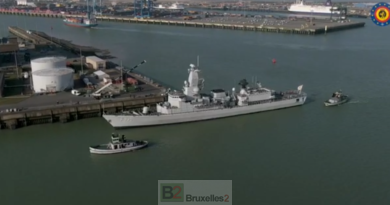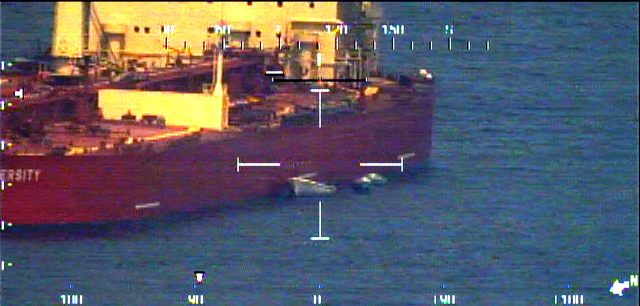(At the heart of the MICA Center 1) Monitoring all the seas of the globe
(B2 in Brest) In the depths of the Atlantic maritime prefecture, not only is the command of the French nuclear forces, but also the maritime surveillance hub
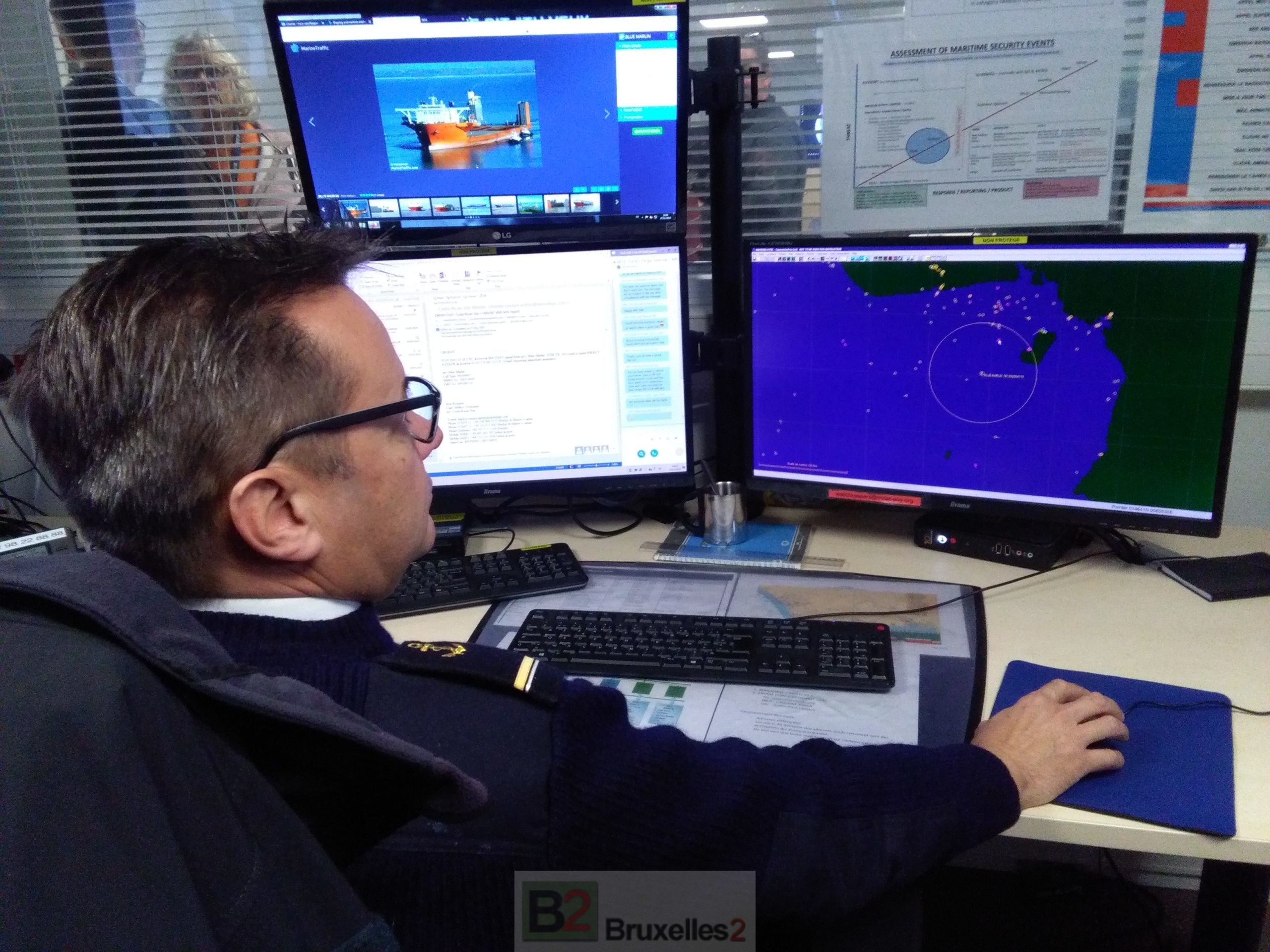
Three operating rooms, one goal: surveillance against piracy
Within the MICA Center (Maritime Information Cooperation and Awareness Center), three structures operate side by side in slightly different formats: a part directly managed by the French Navy, then two international special units, one dedicated to the Gulf of Guinea (MDAT-GOG), the other to the Indian Ocean and the Gulf of Aden (MSCHOA). Together, they form a hub, a center of maritime expertise dedicated to ships, against piracy. " To disseminate information, it will not do alone in its corner remarks an officer.
The MICA Center itself
Six operators in all collect information. They monitor 200 ships daily, which have signed a voluntary monitoring agreement protocol with the French Navy. This is what allows them to have access to information on the area that interests them, and to have a weekly situation update. The ships' officers report by email, by telephone, via a dedicated FMS site. 3000 emails per month are processed in this way.
A real information hub
It's a real hub, an information network. The center provides ships and shipowners with the information they need, a daily snapshot, alerts in the event of attacks, periodic information, periodic summaries, and longer-term publications (such as the piracy report).
From the basement to the entresol, while waiting for the great hall
Over time, and according to needs, the MICA has grown. Today it brings together a total of thirty people. This rise in power can be recognized by a sign. In its infancy, the MICA was in the basement of the prefecture. Today, it has gone up one floor to the mezzanine...
State funded
It is mainly financed by the (French) Navy, except for the MSCHOA which benefits from joint European financing (via the Athena mechanism). For ships, the service costs nothing. It is a service that is provided free of charge in a sovereign way. Shipowners don't put in any money. And they have no intention of putting any (see box).
In a small room next door is the MSCHOA
It is the latest addition to the MICA Center range. An essential element of the European anti-piracy command (based in Rota, Spain), it monitors the European anti-piracy operation EUNAVFOR Atalanta, and thus the necessary link between the military and the merchant navy.
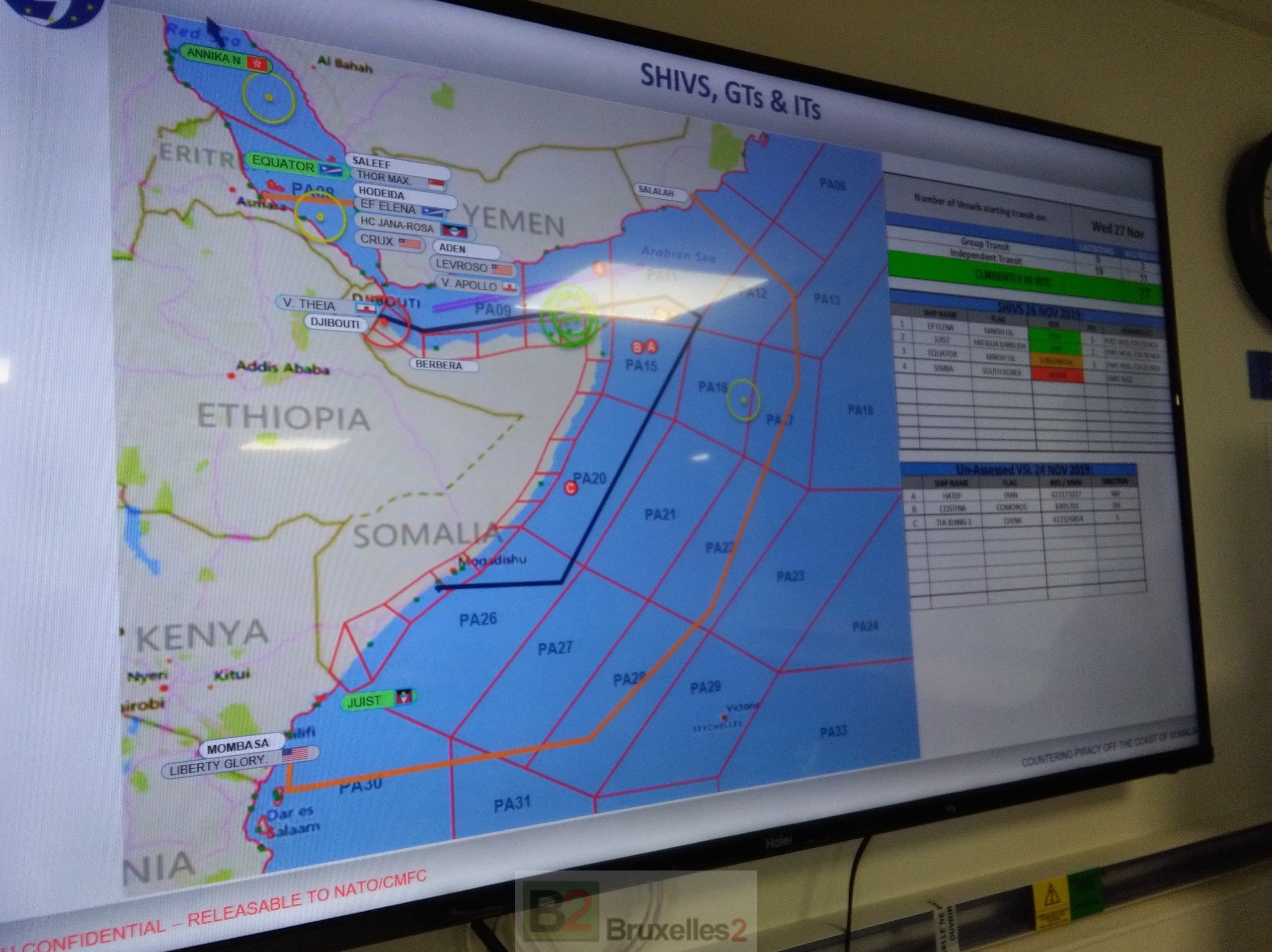
In a small room of 20 m2, five to six operators work permanently, 24 hours a day, 24 days a week, on the same principle as 'those opposite' (the night is divided into two shifts 7 p.m. to 7 a.m. and 20h to 2h). Here, 2 ships are tracked per day. The corpus is more international with a Spanish officer, another Belgian.
Tracking is more accurate in the 'Internationally Recommended Transit Corridor' (IRTC in maritime jargon) which dozens of ships of all nationalities and types use every day to go from the Red Sea after the Suez Canal to the Strait of Hormuz or Gulf of Oman (and back).
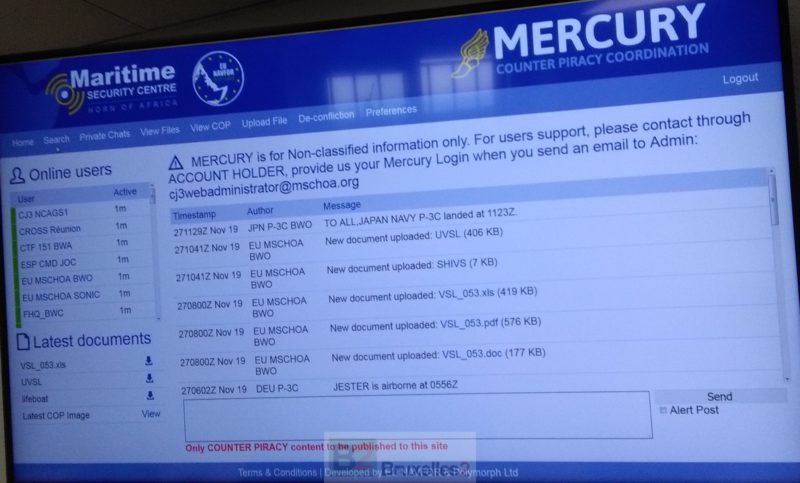
Surveillance of the Gulf of Guinea
The MDAT GOG (Maritime Domain Awareness for Trade-Gulf of Guinea) is monitoring the situation in the Gulf of Guinea under a Franco-British agreement. It has been working since 2016, it is the oldest of these three devices in fact.
Access to this service is open to all vessels present in the Gulf of Guinea, regardless of flag or nationality. There are approximately 950 registered vessels. And just over 400 ships tracked per day.
The equipment is provided by the British. The French bring the personnel and the building. A mirror center is installed in Portsmouth in the United Kingdom. the chat is permanently open. The mailbox is shared. " We divide the tasks at the same time. We get out of ancestral rivalries and competition by sharing information.
A principle: the sharing of information
Objective: to monitor what is happening at sea in different parts of the world. What is called in maritime jargon, the voluntary naval control (or CNV).
« Part of the solution lies in the flow of information. It must be as fluid as possible in order to allow players in the national maritime industry to free themselves from the dangers present in the areas » that they cross explained in 2016, frigate captain Franck Musique, the number 2 of the command of Brest.
The best prevention, to alert
This principle remains the same today. " Raising the alarm prevents further attacks. Indeed, in general, an attack which fails is followed by others. Timely information allows other ships to react and avoid being hijacked “says Rear Admiral Nicolas Vaujour, in charge of French Navy operations.
In connection with other centers
The MICA Center is linked to other civil centers: the CRFIM of Madagascar, the IRC of Singapore... five centers in all. In each of them there are inserted French officers. This device is in the process of being completed. A center is thus being created in India, in New Delhi, and another is in the process of being created in the Pacific. " Everyone feels the need to merge their maritime information continues the rear admiral.
Experienced staff
About thirty sailors work here. All sailed. They have at least two stripes, with very different qualifications. We thus find navigators, semaphoric lookout detectors, helmsman navigators. " We need people who have lived through operations — specifies Lieutenant Commander Gilles Chehab, commander of the MICA Center —, have lived at sea, know what it is. »
(Nicolas Gros-Verheyde)
For shipowners there is no question of paying
The president of Armateurs de France, Jean-Marc Roué, repeated it in Brest to the press: " pay for the service, I don't know if it's really necessary. [...] A sovereign state like France, which is the leader in Europe, has no choice but to be super equipped. And shipping companies are already investing heavily in their own safety. " There is not a [serious] company that is going to sail in a risk area without having planned security measures, such as a citadel. "" Raising an additional tax is therefore not the question »
Report in Brest, in the heart of the Mica Center:
- 1. Surveillance of all the seas of the globe
- 2. Voluntary naval cooperation: preventing, informing, alerting
- 3. The different piracy trends seen by operational staff
- 4. Exercise Grand African Nemo and Operation Corymbe, demonstration of possible know-how
On the part of the report in Rota (Spain):
- At the headquarters of the Atalanta anti-piracy operation in Rota (Cadiz)
- Atalanta eleven years later. An always useful operation (Rear Admiral Piegaja)
Read also:
Report produced in October in Rota (solo) and at the end of November in Brest (partly solo and with colleagues from the regional press).

